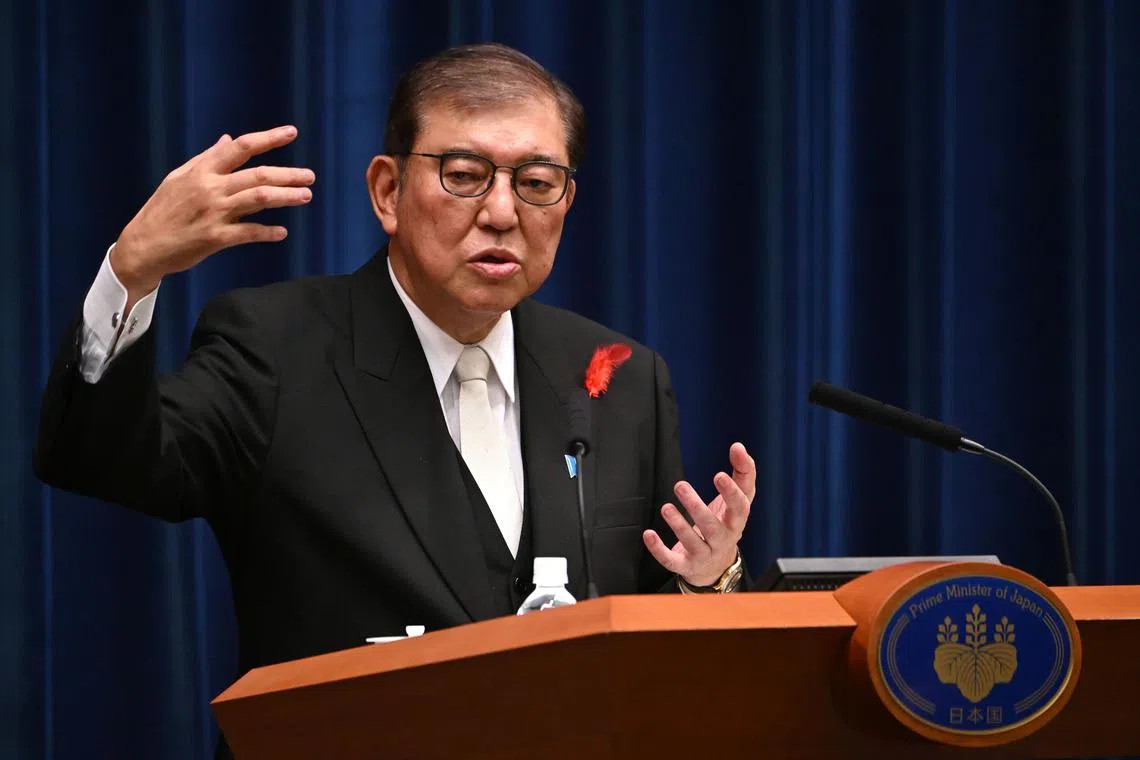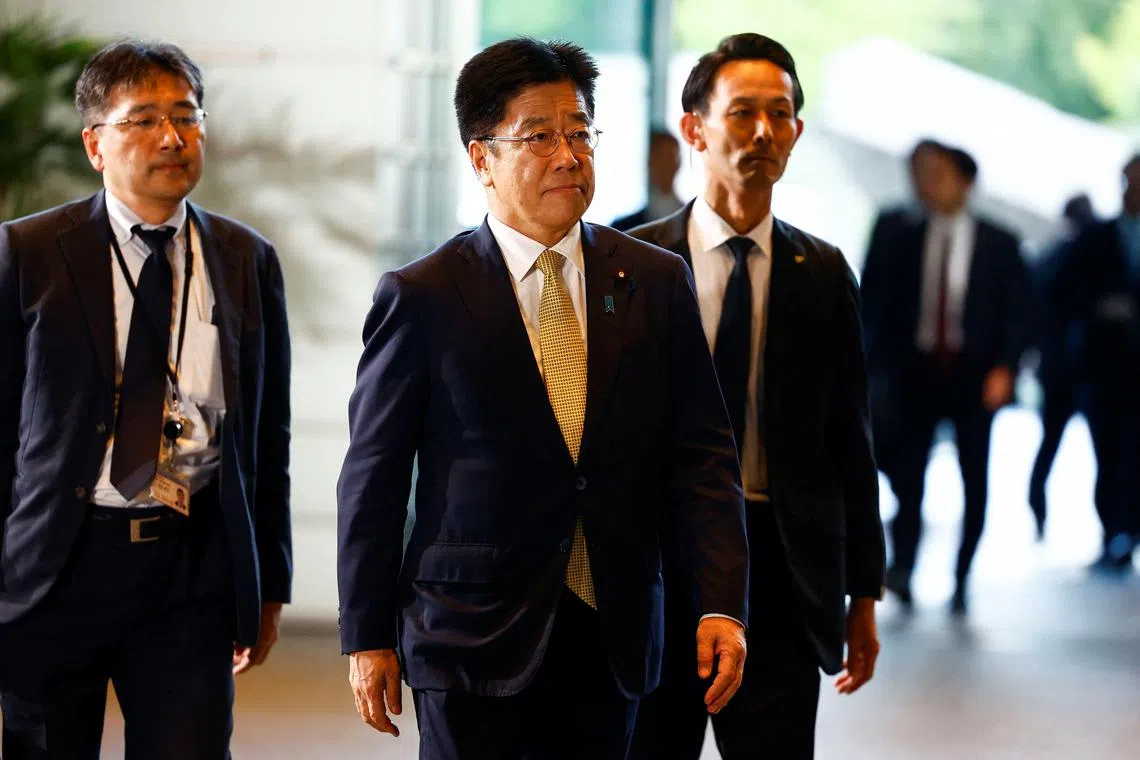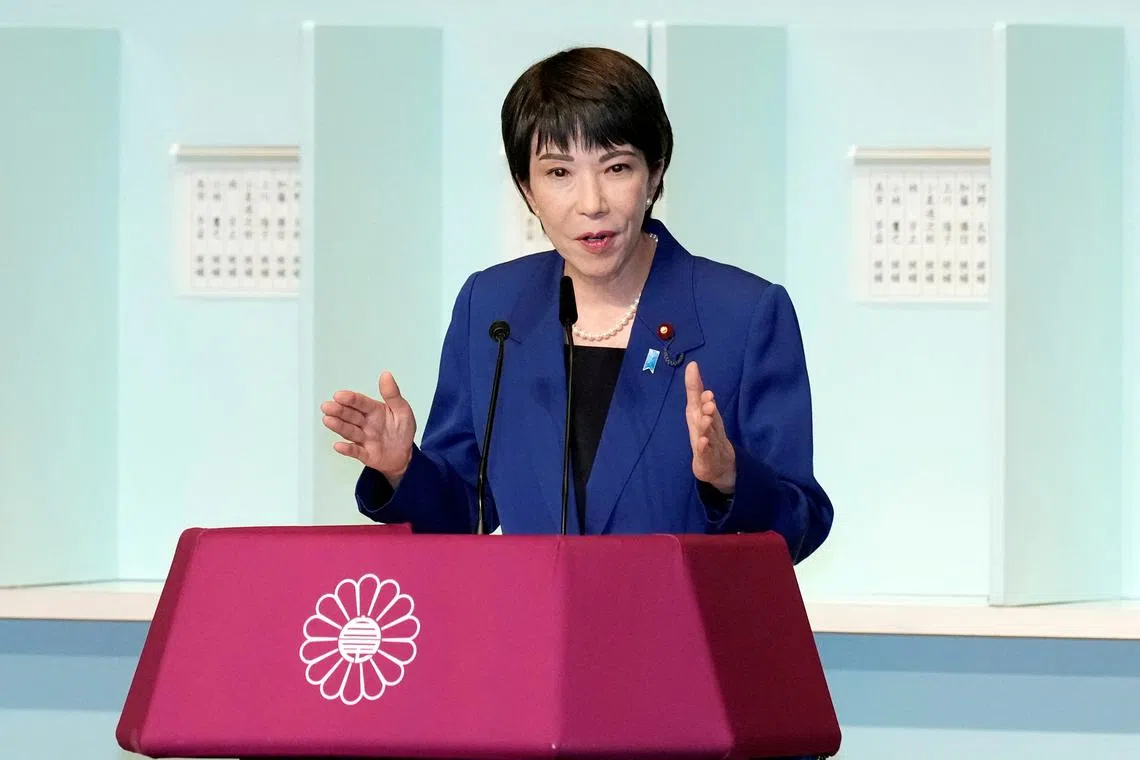Japan’s new PM Ishiba pledges reform, deeper ties with friendly nations
Sign up now: Get insights on Asia's fast-moving developments

Japan’s new Prime Minister Shigeru Ishiba must quell simmering anger at home and navigate a volatile security environment in East Asia.
PHOTO: EPA-EFE
TOKYO – Japan’s new Prime Minister Shigeru Ishiba on Oct 1 promised political reform and help for households as prices rise, and said he would seek deeper ties with friendly nations to counter the gravest security threats his country has faced since World War II.
Mr Ishiba earlier unveiled his Cabinet as he seeks to heal party divisions and secure a national mandate after calling an Oct 27 snap election.
The 67-year-old former defence minister, who last week won a close-fought contest to lead the ruling Liberal Democratic Party (LDP), was confirmed earlier in the day as prime minister by Parliament.
“I want this Cabinet to be one that trusts the people and is trusted by the people,” Mr Ishiba said.
His administration’s approach to diplomacy with Japan’s closest ally, the United States, will be in focus, as he has repeatedly called for a more balanced relationship with Washington, including having greater oversight of bases in Japan used by the US military.
He has also proposed creating an Asian version of the collective security group Nato to deter China, an idea that could draw ire from Beijing and has already been dismissed by a senior US official as hasty.
Mr Ishiba must quell simmering anger at home over political scandals, rising living costs and a sluggish economy, and navigate a volatile security environment in East Asia fuelled by an increasingly assertive China and nuclear-armed North Korea.
Pledges
Speaking at his first press conference, the new Prime Minister promised help for those struggling with rising prices including potential payouts, a minimum wage hike, and regional revitalisation.
He said he had yet to give instructions to his Cabinet about proposals he made during the LDP leadership campaign.
The veteran lawmaker, seen as somewhat of a party outsider who failed at four previous leadership bids, has named a mix of rivals and allies to a Cabinet of 20 ministers that includes only two women, fewer than half the number in the previous administration.
Only seven have served in a Cabinet before.
Among the men are two leadership rivals in key positions – Mr Katsunobu Kato as finance minister, and Mr Yoshimasa Hayashi, who stays on as chief Cabinet secretary, a post that includes the role of top government spokesman, the government announced.
The appointment of Mr Kato, a proponent of former premier Shinzo Abe’s “Abenomics” expansionary fiscal and monetary policies, appears to be a balancing act to alleviate concerns over the next Cabinet’s economic strategy.

The appointment of Mr Katsunobu Kato appears to be a balancing act to alleviate concerns over the next Cabinet’s economic strategy.
PHOTO: REUTERS
The Nikkei stock index fell nearly 5 per cent on Sept 30 in reaction to a surging yen following Mr Ishiba’s win over Ms Sanae Takaichi, a monetary dove and fiscal expansionist, in the Sept 27 leadership contest.
A close Ishiba ally, Mr Takeshi Iwaya, a former defence chief, will take over as foreign minister, while Mr Gen Nakatani will return to the Defence Ministry, a position he held in 2016. Mr Yoji Muto, a former junior minister, will take charge at the Economy, Trade and Industry Ministry.
In his victory speech on Sept 27, Mr Ishiba spoke about the need to beef up Japan’s security after recent territorial incursions by Chinese and Russian military vessels.
Outside the tent
Five of the lawmakers who contested the leadership race have not been included in his government nor given key party jobs.
Among them is Ms Takaichi, a hardline conservative he beat by 215 votes to 194 on Sept 27 in the closest leadership election in almost seven decades. Local media reported she had declined a senior party post.
That could make it difficult for Mr Ishiba, a perennial favourite in public opinion polls, to manage a fractious ruling group roiled by scandals including unrecorded donations at fundraising parties.

Local media reported that Ms Sanae Takaichi had declined a senior party post.
PHOTO: REUTERS
Mr Yoshihiko Noda, the leader of the largest opposition party – the Constitutional Democratic Party of Japan (CDPJ) – said it planned to attack the LDP over its scandals in the upcoming election.
“We cannot establish proper governance through a pseudo-regime change,” Mr Noda said on public broadcaster NHK.
But despite its troubles, the party which has ruled Japan for most of the post-war era remains likely to hold on to power in the upcoming election, given Japan’s weak opposition.
A third of respondents in a weekend poll by the Mainichi newspaper said they supported the LDP, versus 15 per cent for the main opposition CDPJ.
More than half of respondents, including those who supported opposition parties, said they were optimistic about Mr Ishiba’s appointment. REUTERS


